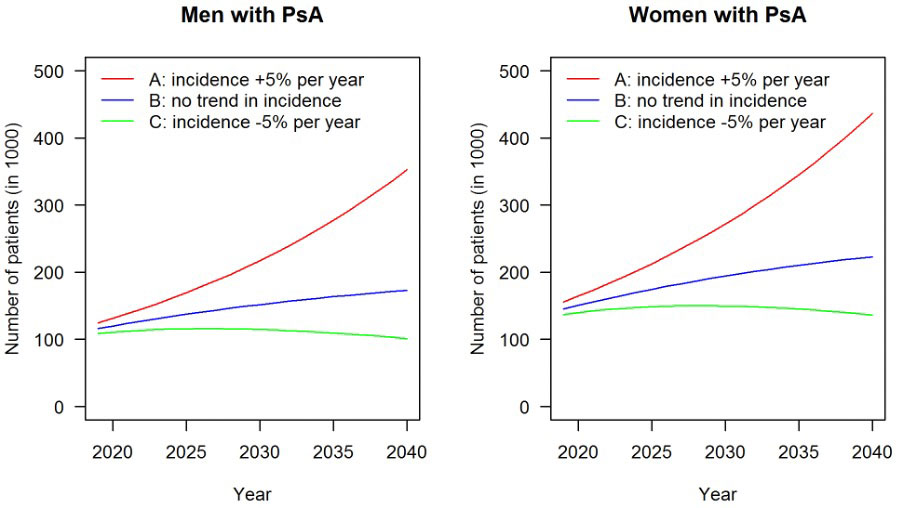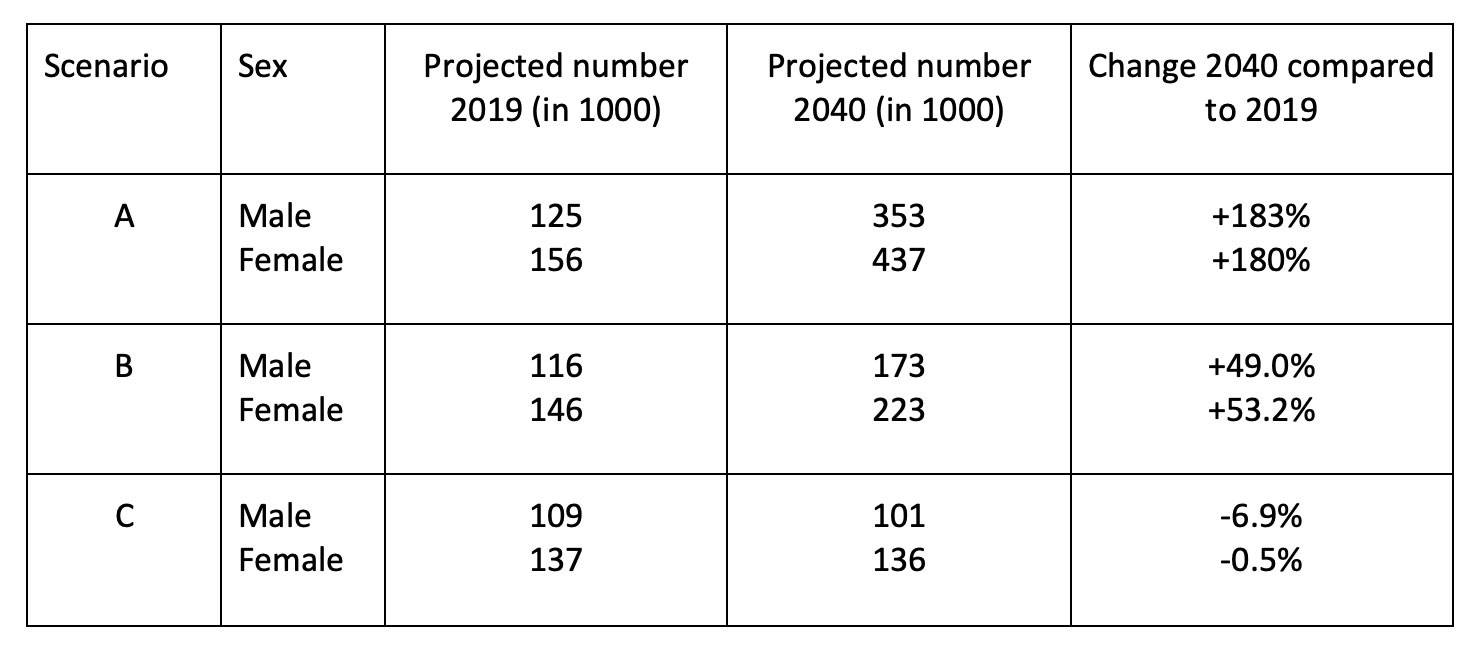Session Information
Date: Sunday, November 13, 2022
Title: Spondyloarthritis Including PsA – Diagnosis, Manifestations, and Outcomes Poster II
Session Type: Poster Session B
Session Time: 9:00AM-10:30AM
Background/Purpose: Recently, we have reported an increase in the incidence and prevalence of patients with PsA in Germany based on claim data from 65 million people in statutory health insurance during 2009 to 2012 [1]. The question of how these will develop in the future was nor answered, yet. We therefore performed a population-based estimation of long-term projection for incidence and prevalence of patients with diagnosis of PsA until the year 2040.
Methods: Based on prevalence and incidence of PsA, the number of men and women diagnosed with PsA until 2040 is projected using the illness-death model [2]. The mortality and age distribution of the general population is taken from the official population forecasts of the German Federal Statistical Office. Mortality of patients with PsA was considered by using estimates of the mortality rate ratios [3]. Percent change in projected case numbers refer to 2012 (base year).
Results: Starting from 2012, three scenarios about the incidence of PsA after 2012 were found (Graph): (A) increase of 5% per year as observed in [1], (B) no trend in incidence and (C) decrease of a similar 5% per year due to a theoretically anticipated early treatment effect. In scenario C, the number of men and women peaks at about 2028 and decreases slightly afterwards. The graph shows the projected numbers of men (left panel) and women (right) with PsA until 2040 in the three incidence scenarios. The projected numbers and the percent changes are given in the table.
Conclusion: Different scenario may be considered based on recent population data for the incidence course of PsA until 2040. The most optimistic scenario showed a trend of stabilization of incidence including the anticipated population mortality rates. Thus, it is likely that substantially more medical resources for treating patients with PsA are necessary in the next two decades, whereby approaches to the potential prevention of PsA, for example by very early treatment of psoriasis patients, should be further pursued.
To cite this abstract in AMA style:
Sewerin P, Knippschild s, Tulka S, Baraliakos X, Brinks R. Number of Patients with Psoriatric Arthritis (PsA) in Germany Until 2040: Projection Based on Data from 65 Million People in the German Statutory Health Insurance [abstract]. Arthritis Rheumatol. 2022; 74 (suppl 9). https://acrabstracts.org/abstract/number-of-patients-with-psoriatric-arthritis-psa-in-germany-until-2040-projection-based-on-data-from-65-million-people-in-the-german-statutory-health-insurance/. Accessed .« Back to ACR Convergence 2022
ACR Meeting Abstracts - https://acrabstracts.org/abstract/number-of-patients-with-psoriatric-arthritis-psa-in-germany-until-2040-projection-based-on-data-from-65-million-people-in-the-german-statutory-health-insurance/


